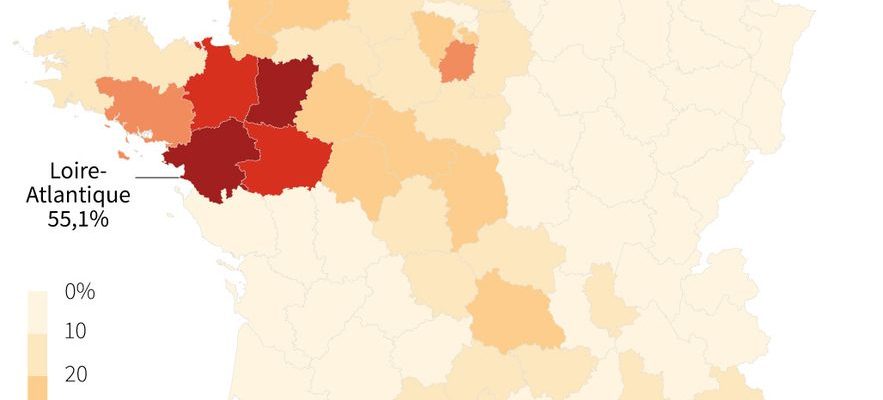The French could again turn in circles to fill their tank in the coming weeks. According to government data analyzed by AFP, more than 15% of service stations in France are running out of either gasoline or diesel, and 7% are completely dry on Monday, March 27.
The energy sector (gas, oil, electricity) has remained particularly mobilized since January 19 against the pension reform, approved in Parliament via article 49.3. Against the background of the strike in the refineries, the fuel shortage, already suffered by the population on a large scale in the fall of 2022, is therefore back.
The North-West particularly affected
The West of the country is particularly affected. In Loire-Atlantique, where the situation is the most severe, more than half of service stations are short of at least one fuel, petrol or diesel. Mayenne, Ille et Vilaine or Maine-et-Loire have more than 40% of stations in a situation of shortage. The South is also strongly affected, in particular the Bouches-du-Rhône with more than 40%, and several other departments with more than 30%.
The situation also continues to deteriorate in Île-de-France: nearly 17% of Parisian gas station attendants report supply difficulties, compared to 30% in Val-de-Marne and almost 22% in Hauts-de-Seine. Conversely, the northeast of the country and the southwest coast seem to be spared for the moment.
Percentages by department of service stations in short supply as of March 27, 2023.
© / AFP
Five of the seven French refineries shut down
At this stage, only two of the seven refineries in the territory continue to produce, that of Esso-Exxon-Mobil in Fos-sur-Mer (Bouches-du-Rhône) and that of TotalEnergies in Feyzin (Rhône). The latter nevertheless runs “in reduced flow service”, according to the group’s management. The situation in Loire-Atlantique is explained in particular by the renewable strike voted until Tuesday, March 28 by the employees of the Donges refinery, which no longer produces a drop.
On the weekend of March 26, Esson-ExxonMobil’s Port-Jérôme-Gravenchon refinery, whose shipments are still blocked, was also shut down, failing to be supplied with crude due to the continuation of the strike movement at the Compagnie Industrielle Maritime at the oil depot in Le Havre. That of TotalEnergies called “Normandy”, in Gonfreville-l’Orcher is also at a standstill. Fuel prices have experienced a slight jump in recent days, but no more significant increase than the variations experienced in recent weeks.
